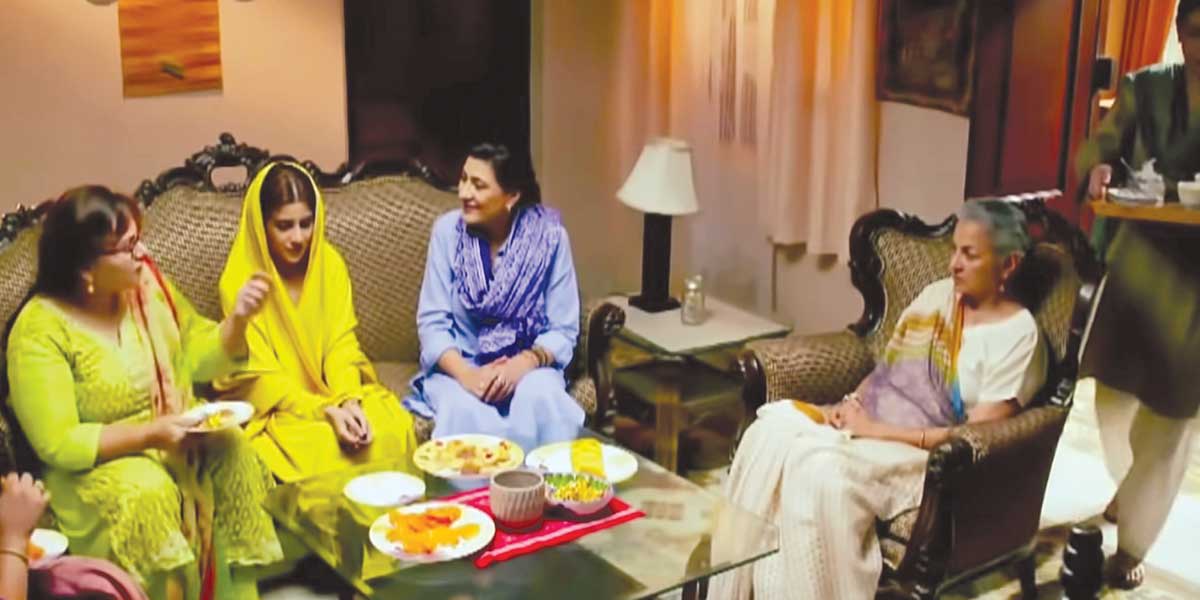
A desi woman’s biological clock typically becomes a ticking time bomb for her parents as soon as she reaches a particular age. At that point, it does not matter how high up the career ladder a woman climbs as the cut-off age for tying the knot is strictly set at 25, not 30. Thus begins the rishta hunt.
At a certain age, some girls notice a staggering change in attitude from their families. Conversations about them solely revolve around the topic of marriage, with no consideration for their future academic and professional aspirations. We live in Pakistan, where marriage is regarded as a highly significant social construct and an institution with a longstanding and well-established history. The culture is also accustomed to arranged marriages as being far more acceptable than love marriages, with the pattern continuing for generations. Intriguingly, contrary to the belief of the majority parents that matches are made in heaven, a third party is usually employed for matchmaking. Most young Pakistani women spend their early 20s serving endless cups of tea to rishta-hunting aunties and the family of the suitors. The mortifying process is not much different from a segment of a beauty pageant, leaving little room for the woman to be free from objectification.
The rishta screening, a rigorous practice that nearly every girl in our society undergoes, places her in front of unknown women who feel free to hurl any harsh judgment at them with no hint of shame. It all begins with the notorious tea trolley rolling out with refreshments followed by the verdict imparted through cheeky remarks. Under the guise of tradition, girls are made to dress to the nines to present themselves as objects that can be stared at lecherously, judged, and assessed by a bunch of strangers. From ‘tasveer mein tou choti lag rahi thi‘, ‘larki ka rang daba hua hai’, ‘aap ne umar chupai hai larki ki’, to ‘humare larkay ko smart larkiyan pasand hain’ and so on, a whole host of cruel comments are thrown at girls who go through this insufferable ordeal multiple times. Whether it is the matchmaker or the suitor’s family, both are known to scrutinize every detail; too intelligent, too talkative, too dull, too nervous, too uneducated, or too educated, too fair, or dark, too tall, or too short. Things as seemingly insignificant as the way a girl sits, or the texture of her hair are also not spared. They love scanning a young woman, asking probing questions, and picking on their flaws.
While tension lingers in the air as a girl walks into the rishta lounge and gets unabashedly interrogated about her life, the situation is entirely different on the other side. The girl’s folks are unlikely to have many demands when meeting the suitor’s family. A man who is employed and settled is considered a promising prospect at the drop of a hat. Generations of desi women have been subjected to this toxic and oppressive rishta culture that not only objectifies them but also reduces their self-worth to outward appearances. Irrespective of what the man looks like, the family demands nothing less than a woman who is fair, thin, and domesticated to live up to their mountain of expectations for their darling son.
Too often, the qualities necessary to build effective human relationships, such as kindness, patience, generosity, and wisdom, are completely overlooked. “Tall, slim, trim, fair, and flexible,” a quote from the original Netflix series Indian Matchmaking, illustrates an accurate view of what arranged marriages encompass. In addition to humiliating the women who endure the ordeal, this deep-rooted tradition suggests that the outdated and racist notion of beauty embedded in the problematic rishta culture trumps everything else. In the face of incessant subjectivity, young women often believe that they did something wrong to be rejected by a suitor. Not to mention that rejection can cause a wide range of psychological issues that may cause permanent damage. It is known to trigger depression, anxiety, negative thinking, self-doubt, jealousy, and many other problems, which may last a lifetime.
It is ironic that in a society that prides itself on protecting women from objectification by implementing Islamic values like purdah, we are dangerously obsessed with exhibiting young females to strangers who sinfully scrutinize them, their physical appearance, and blatantly comment on it. Needless to say, it is about time for women to take charge of their future. Rather than preparing them to become ideal housewives and daughters-in-law, parents should strive to raise independent, empowered, and self-aware daughters who recognize their worth and potential. We need to flip the script and bring a long-awaited end to this overplayed and toxic patriarchy by shutting down the biological clock and allowing young women to live their life at their own pace, taking the wheel and steering their life in whatever direction they desire.
Catch all the Breaking News Event and Latest News Updates on The BOL News
Download The BOL News App to get the Daily News Update & Live News.












 Read the complete story text.
Read the complete story text. Listen to audio of the story.
Listen to audio of the story.